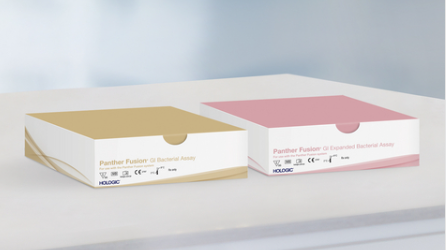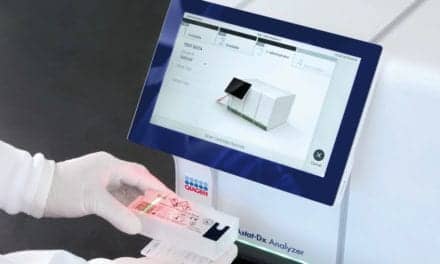New assays detect common bacterial causes of infectious gastroenteritis using molecular technology on existing diagnostic platforms.
The US Food and Drug Administration has granted 510(k) clearance for Panther Fusion Gastrointestinal (GI) Bacterial and Expanded Bacterial assays from Hologic Inc. The assays also received CE marking in the European Union under In Vitro Diagnostic Regulation requirements.
The molecular tests detect bacterial pathogens responsible for infectious gastroenteritis, including Salmonella, Campylobacter, Shigella, E. coli (including O157), Vibrio, Yersinia and Plesiomonas. The assays can be run individually or in combination as customizable mini-panels.
Infectious gastroenteritis affects an estimated 200 million people annually in the US, with up to 3 million cases requiring ambulatory visits. In Europe, foodborne outbreaks have resulted in the highest numbers of hospitalizations and deaths recorded in a decade, with Salmonella accounting for the largest proportion of cases.
“FDA clearance and CE marking of our initial GI pathogen detection tests reflect our dedication to advancing diagnostic innovation, and equipping laboratories and clinicians globally with the tools they need to provide fast and informed care when time matters most,” says Jennifer Schneiders, PhD, president of diagnostic solutions at Hologic, in a release.
Replacing Traditional Methods
Traditional identification of pathogens causing severe diarrheal illness required combining culture, biochemical, and microscopy-based tests, which can be labor-intensive, time-consuming, and less sensitive than molecular methods, according to a release from Hologic.
The new tests leverage molecular technology and allow testing to be tailored to individual patient needs. The customizable format aims to reduce testing complexity, streamline laboratory processes, and accelerate time to diagnosis and clinical management. The approach supports antimicrobial stewardship by enabling targeted antibiotic use when clinically necessary.
The assays run on Hologic’s Panther Fusion System, an add-on to the company’s automated Panther System. The molecular diagnostics platform consolidates assays for women’s health, sexually transmitted infections, respiratory infections, viral load, transplant viruses, and infectious gastroenteritis.
The Panther System provides sample-to-result molecular diagnostics for low-, medium-, or high-throughput laboratories. The platform combines testing for multiple infectious diseases simultaneously and includes Open Access functionality for laboratory-developed tests through the Panther Fusion module.
Photo caption: Panther Fusion GI Bacterial and Expanded Bacterial assays
Photo credit: Hologic





